Advertisement
Supported by
Inside the Best-Seller List

The Best-Seller List Has Some Regrets, and That’s OK
- Share full article

By Elisabeth Egan
- Feb. 10, 2022
RUE THE DAY As anyone who has suffered from insomnia knows, regret is a many-tentacled monster that hides under your bed and wraps its sticky arms around your brain in the middle of the night. Daniel Pink takes on the subject (and all its slithering, stultifying permutations) in his seventh book, “The Power of Regret,” which enters this week’s hardcover nonfiction list at No. 3. But — there’s always a but when it comes to the life-changing magic of tidying up your mind-set — Pink isn’t here to tell you how to slay the beast. He wants you to look it in the eye, learn something from it, give it a little space on your pillow.
Using his usual mix of anecdotes and social psychology, the author of “Drive,” “When” and “To Sell Is Human” dismantles the trendy notion of “no regrets.” You’ve seen the tattoos and been stuck behind the bumper stickers; suddenly, regretting nothing is as de rigueur as calling everyone a hero. Pink wants us to rethink this approach. He writes, “Regret is not dangerous or abnormal, a deviation from the steady path to happiness. It is healthy and universal, an integral part of being human. Regret is also valuable. It clarifies. It instructs. Done right, it needn’t drag us down; it can lift us up.” And he has data to back up his claims: In 2020, Pink worked with survey researchers to conduct the American Regret Project, “the largest quantitative analysis of American attitudes about regret ever conducted.” He also launched a website, the World Regret Survey , which has collected more than 16,000 regrets from people in 105 countries.
GOLD STANDARD “We named you Mei,” Eva Chen writes in her latest best seller, “I Am Golden,” which lands on the picture book list at No. 8. “Not May like the month. Mi , which means beautiful. Like the country we live in now — Mi Guó, America.” These words appear alongside Sophie Diao’s illustration of a besotted-looking mother and a bespectacled father cradling a swaddled newborn as the Statue of Liberty raises her torch in the background. “I Am Golden” celebrates the Chinese immigrant experience as seen through the eyes of the younger generation. “This book is for all the golden children out there,” writes Chen, who is the director of fashion partnerships at Instagram, in her dedication. “You are dreamers and doers and makers. Your difference is your superpower.” Chen and Diao are both daughters of Chinese immigrants, and this is their first book together.
Elisabeth Egan is an editor at the Book Review and the author of “A Window Opens.”
Follow New York Times Books on Facebook , Twitter and Instagram , s ign up for our newsletter or our literary calendar . And listen to us on the Book Review podcast .
Explore More in Books
Want to know about the best books to read and the latest news start here..
10 Best Books of 2024: The staff of The New York Times Book Review has chosen the year’s top fiction and nonfiction . For even more great reads, take a spin through all 100 Notable Books of 2024 .
Cormac McCarthy’s Secret: Revelations about a relationship between the author and a girl who was 16 when they met shocked readers, but not scholars of his work. Now there’s a debate about how much she influenced his writing .
Giving Thanks Every Day: In Robin Wall Kimmerer’s new book, “The Serviceberry,” the “Braiding Sweetgrass” author proposes gratitude as an antidote to prevailing views of nature as a commodity.
A Raw Portrait of War: In their new collections, the Palestinian poets Mosab Abu Toha and Najwan Darwish share unvarnished views of destruction, displacement and loss .
The Book Review Podcast: Each week, top authors and critics talk about the latest news in the literary world. Listen here .
- ADMIN AREA MY BOOKSHELF MY DASHBOARD MY PROFILE SIGN OUT SIGN IN
THE POWER OF REGRET
How looking backward moves us forward.
by Daniel H. Pink ‧ RELEASE DATE: Feb. 1, 2022
An insightful and rewarding glimpse into the emotional pathways of human contrition.
A study of regret based on a series of international group behavioral studies.
Culling responses from an expansive questionnaire, bestselling author Pink analyzes the cumulative benefits of hindsight to inform future decision-making. His surveys encompassed hundreds of personal stories from respondents who were able to absorb the sting of regret and channel it toward better quality of life. The author believes that while optimism is essential to improved well-being, negative emotions like regret bring clarity, meaning, and much-needed alertness. Throughout more than a dozen illuminating chapters, Pink cites examples from decades of research on the psychology behind high-stakes negotiations and the resultant regret that often followed. Dubbing regret the “quintessential upward counterfactual—the ultimate If Only ,” the author isolates four core categories: foundation (failure to be responsible in financial, educational, or health matters), boldness (forgone opportunities), moral (the temptation to behave poorly), and connection (unrealized potential relationship). Arguing that the open acknowledgment of regret is key to repurposing it toward the greater good, Pink gives close scrutiny to two research projects that he personally developed and championed: the World Regret Survey and the American Regret Project. The companion website for these initiatives amassed thousands of reflections from 105 countries and across a collage of cultures. Examples include a woman who regrets not climbing into her ill husband’s hospital bed on the night of his death; a Saudi Arabian businesswoman who laments a tendency to downplay her intelligence and inventiveness “to please/not upset others”; and a man who, 60 years later, still mourns not taking a college classmate up on the opportunity to join the 1964 Freedom Summer project. In the final chapters, Pink offers practical guidance on how readers can thrive beyond their mistakes, molding them into learning opportunities, and how to flip the negative connotations inherent with regret into positive experiences: “By making us feel worse today, regret helps us do better tomorrow.”
Pub Date: Feb. 1, 2022
ISBN: 978-0-7352-1065-3
Page Count: 256
Publisher: Riverhead
Review Posted Online: Dec. 8, 2021
Kirkus Reviews Issue: Jan. 1, 2022
HEALTH & FITNESS | PSYCHOLOGY | SELF-HELP
Share your opinion of this book
More by Daniel H. Pink

BOOK REVIEW
by Daniel H. Pink

THINK YOU'LL BE HAPPY
Moving through grief with grit, grace, and gratitude.
by Nicole Avant ‧ RELEASE DATE: Oct. 17, 2023
Some of Avant’s mantras are overstated, but her book is magnanimous, inspiring, and relentlessly optimistic.
Memories and life lessons inspired by the author’s mother, who was murdered in 2021.
“Neither my mother nor I knew that her last text to me would be the words ‘Think you’ll be happy,’ ” Avant writes, "but it is fitting that she left me with a mantra for resiliency.” The author, a filmmaker and former U.S. Ambassador to the Bahamas, begins her first book on the night she learned her mother, Jacqueline Avant, had been fatally shot during a home invasion. “One of my first thoughts,” she writes, “was, ‘Oh God, please don’t let me hate this man. Give me the strength not to hate him.’ ” Daughter of Clarence Avant, known as the “Black Godfather” due to his work as a pioneering music executive, the author describes growing up “in a house that had a revolving door of famous people,” from Ella Fitzgerald to Muhammad Ali. “I don’t take for granted anything I have achieved in my life as a Black American woman,” writes Avant. “And I recognize my unique upbringing…..I was taught to honor our past and pay forward our fruits.” The book, which is occasionally repetitive, includes tributes to her mother from figures like Oprah Winfrey and Bill Clinton, but the narrative core is the author’s direct, faith-based, unwaveringly positive messages to readers—e.g., “I don’t want to carry the sadness and anger I have toward the man who did this to my mother…so I’m worshiping God amid the worst storm imaginable”; "Success and feeling good are contagious. I’m all about positive contagious vibrations!” Avant frequently quotes Bible verses, and the bulk of the text reflects the spirit of her daily prayer “that everything is in divine order.” Imploring readers to practice proactive behavior, she writes, “We have to always find the blessing, to be the blessing.”
Pub Date: Oct. 17, 2023
ISBN: 9780063304413
Page Count: 288
Publisher: HarperOne
Review Posted Online: Aug. 17, 2023
Kirkus Reviews Issue: Sept. 15, 2023
BODY, MIND & SPIRIT | BIOGRAPHY & MEMOIR | PHILOSOPHY & RELIGION | GENERAL BIOGRAPHY & MEMOIR | SELF-HELP | FAMILY & RELATIONSHIPS

Awards & Accolades
Our Verdict
New York Times Bestseller
IndieBound Bestseller
GREENLIGHTS
by Matthew McConaughey ‧ RELEASE DATE: Oct. 20, 2020
A conversational, pleasurable look into McConaughey’s life and thought.
All right, all right, all right: The affable, laconic actor delivers a combination of memoir and self-help book.
“This is an approach book,” writes McConaughey, adding that it contains “philosophies that can be objectively understood, and if you choose, subjectively adopted, by either changing your reality, or changing how you see it. This is a playbook, based on adventures in my life.” Some of those philosophies come in the form of apothegms: “When you can design your own weather, blow in the breeze”; “Simplify, focus, conserve to liberate.” Others come in the form of sometimes rambling stories that never take the shortest route from point A to point B, as when he recounts a dream-spurred, challenging visit to the Malian musician Ali Farka Touré, who offered a significant lesson in how disagreement can be expressed politely and without rancor. Fans of McConaughey will enjoy his memories—which line up squarely with other accounts in Melissa Maerz’s recent oral history, Alright, Alright, Alright —of his debut in Richard Linklater’s Dazed and Confused , to which he contributed not just that signature phrase, but also a kind of too-cool-for-school hipness that dissolves a bit upon realizing that he’s an older guy on the prowl for teenage girls. McConaughey’s prep to settle into the role of Wooderson involved inhabiting the mind of a dude who digs cars, rock ’n’ roll, and “chicks,” and he ran with it, reminding readers that the film originally had only three scripted scenes for his character. The lesson: “Do one thing well, then another. Once, then once more.” It’s clear that the author is a thoughtful man, even an intellectual of sorts, though without the earnestness of Ethan Hawke or James Franco. Though some of the sentiments are greeting card–ish, this book is entertaining and full of good lessons.
Pub Date: Oct. 20, 2020
ISBN: 978-0-593-13913-4
Page Count: 304
Publisher: Crown
Review Posted Online: Oct. 27, 2020
Kirkus Reviews Issue: Dec. 1, 2020
BIOGRAPHY & MEMOIR | BODY, MIND & SPIRIT | ENTERTAINMENT, SPORTS & CELEBRITY | SELF-HELP | GENERAL BIOGRAPHY & MEMOIR
More by Matthew McConaughey

by Matthew McConaughey illustrated by Renée Kurilla
- Discover Books Fiction Thriller & Suspense Mystery & Detective Romance Science Fiction & Fantasy Nonfiction Biography & Memoir Teens & Young Adult Children's
- News & Features Bestsellers Book Lists Profiles Perspectives Awards Seen & Heard Book to Screen Kirkus TV videos In the News
- Kirkus Prize Winners & Finalists About the Kirkus Prize Kirkus Prize Judges
- Magazine Current Issue All Issues Manage My Subscription Subscribe
- Writers’ Center Hire a Professional Book Editor Get Your Book Reviewed Advertise Your Book Launch a Pro Connect Author Page Learn About The Book Industry
- More Kirkus Diversity Collections Kirkus Pro Connect My Account/Login
- About Kirkus History Our Team Contest FAQ Press Center Info For Publishers
- Privacy Policy
- Terms & Conditions
- Reprints, Permission & Excerpting Policy
© Copyright 2024 Kirkus Media LLC. All Rights Reserved.
Popular in this Genre
Hey there, book lover.
We’re glad you found a book that interests you!
Please select an existing bookshelf
Create a new bookshelf.
We can’t wait for you to join Kirkus!
Please sign up to continue.
It’s free and takes less than 10 seconds!
Already have an account? Log in.
Trouble signing in? Retrieve credentials.
Almost there!
- Industry Professional
Welcome Back!
Sign in using your Kirkus account
Contact us: 1-800-316-9361 or email [email protected].
Don’t fret. We’ll find you.
Magazine Subscribers ( How to Find Your Reader Number )
If You’ve Purchased Author Services
Don’t have an account yet? Sign Up.
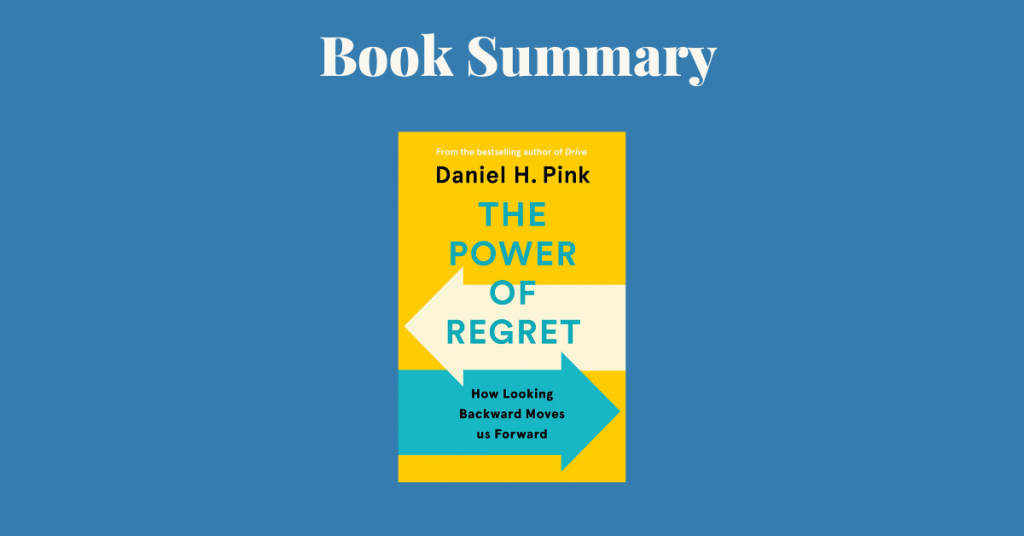
The Power of Regret Book Summary, Review, Notes
This is a book about regret, the horrendous feeling we get in our stomachs, that teaches us how to use its strengths as a force of good. Regret can help us make better decisions, perform better at work (or school), and bring greater meaning to our lives.
Book Title : The Power of Regret: How Looking Backward Moves Us Forward Author : Daniel Pink Date of Reading : February 2022 Rating : 8/10
What Is Being Said In Detail:
The Power of Regret has a total of 14 chapters, divided into three sections:
- Part One. REGRET RECLAIMED. This part talks about why regret matters and goes over the research in the past seventy years.
- Part Two. REGRET REVEALED. This part is about Pink’s research from 2020-2021, where they analyzed over 20,000 answers to questions about regret.
- Part Three. REGRET REMADE. This part promises to teach us how to turn regret into a positive force that can better our lives .
The chapters are the following:
1. The Life-Thwarting Nonsense of No Regrets
This chapter talks about the current atmosphere about negative emotion and especially regret. It’s a “non regret” culture and it’s plain wrong. The author mentions examples here such as Edith Piaf, Slash, and Amber Chase.
2. Why Regret Makes Us Human
This chapter talks about the research that proves to you that to be human is to regret things. Most people who don’t have regrets might be seriously ill, whereas the author mentions disorders such as Huntington’s disease.
3. At Leasts and If Onlys
This chapter is about counterfactual thinking. The author showed us the studies of athletes who got second and third place at major competitions such as the Olympics. And the third-place winners were happier than the second-place winners. The ones in the third place did an “at least I got X” while the ones in the second place thought “If only I did X.”
4. Why Regret Makes Us Better
This chapter is all about the three benefits that we can get if we handle regret well: it can improve our decision-making skills, boost our performance , and it can provide a deeper meaning for our lives.
5. Regret on the Surface
This chapter talks about the (faulty) research on regret and what do people truly regret. As it turns out, people regret quite a lot of things spread equally among categories such as family, relationships, education, career, finance, and health.
6. The Four Core Regrets
This chapter defines the fore core regrets: foundational regret which is about stability and security, boldness regret which is about missed opportunities, moral regret which is about belief in our own goodness, and connection regret which is about neglecting the people who give our lives purpose.
7. Foundation Regrets
This chapter explains the foundation regret in detail. Within it, it talks about the “foundation attribution error” which is a combination of externalities such as education, environment, and parenting, along with persona responsibility, that affects our foundation regrets.
8. Boldness Regrets
This chapter explains the boldness regret in detail. Within it, it talks about the regret of people not being true to themselves and the sins of omission.
9. Moral Regrets
This chapter explains the moral regret in detail. Within it, it talks about how people regret not doing the right thing. The section talks about five regretted sins: harm, cheating, disloyalty, subversion, and desecration.
10. Connection Regrets
This chapter explains the connection regret in detail. Within in, Pink talks about the open door and closed door connection regrets. Closed door regrets often involve a person who died and it’s no longer possible to reconnect, while the open door regret is still possible, but requires effort.
11. Opportunity and Obligation
This chapter reverse-engineers the regret to figure out what we value the most and it comes to four things: stability, growth, goodness, and love. And they are about obligations that we didn’t meet or the opportunities we didn’t take (or a combination of both).
12. Undoing and At Leasting
This chapter focuses on regret we have for doing an action. There are two ways to alleviate that pain: undoing what we have done or reframing it in our mind to find some silver lining (…at least we got this positive thing).
13. Disclosure, Compassion, and Distance
This chapter talks about three ways you can turn regret into a positive thing in your life: self-disclosure or sharing your regret, either with another person on paper; self-compassion or being compassionate to yourself since you will make mistakes, and self-distancing or seeing the problem from a neutral , fly-on-the-wall perspective.
14. Anticipating Regret
This chapter talks about the pros and cons of anticipating regret. The pros are that it can help us prevent actions that would cause regret. But the cons are that we’re quite bad at predicting how much regret we would have from a certain action. We should optimize for regret, not completely avoid it because sometimes we need to take that risk.
Most Important Keywords, Sentences, Quotes:
The life-thwarting nonsense of noregrets.
“From every corner of the culture the message booms. Forget the past; seize the future. Bypass the bitter; savor the sweet. A good life has a singular focus (forward) and an unwavering valence (positive). Regret perturbs both. It is backward-looking and unpleasant—a toxin in the bloodstream of happiness.”
“This worldview makes intuitive sense. It seems right. It feels convincing. But it has one not insignificant flaw. It is dead wrong. What the anti-regret brigades are proposing is not a blueprint for a life well lived. What they are proposing is—forgive the terminology, but the next word is carefully chosen—bullshit.”
“This is a book about regret—the stomach-churning feeling that the present would be better and the future brighter if only you hadn’t chosen so poorly, decided so wrongly, or acted so stupidly in the past. Over the next thirteen chapters, I hope you’ll see regret in a fresh and more accurate light, and learn to enlist its shape-shifting powers as a force for good.”
“About one of every five people who get tattoos (presumably including people whose tattoos read “No Regrets”) eventually regret their decision, which is why the tattoo removal business is a $100 million-a-year industry in the United States alone.
“That’s because negative emotions are essential, too. They help us survive. Fear propels us out of a burning building and makes us step gingerly to avoid a snake. Disgust shields us from poisons and makes us recoil from bad behavior. Anger alerts us to threats and provocations from others and sharpens our sense of right and wrong. Too much negative emotion, of course, is debilitating. But too little is also destructive.
“The purpose of this book is to reclaim regret as an indispensable emotion —and to show you how to use its many strengths to make better decisions, perform better at work and school, and bring greater meaning to your life.”
“Nearly all regrets fall into four core categories—foundation regrets, boldness regrets, moral regrets, and connection regrets.”
Why Regret Makes Us Human
“If the precise definition feels elusive, the reason is revealing: regret is better understood less as a thing and more as a process.”
“We can visit the past and the future in our heads. And we can tell the story of something that never actually happened. Human beings are both seasoned time travelers and skilled fabulists.”
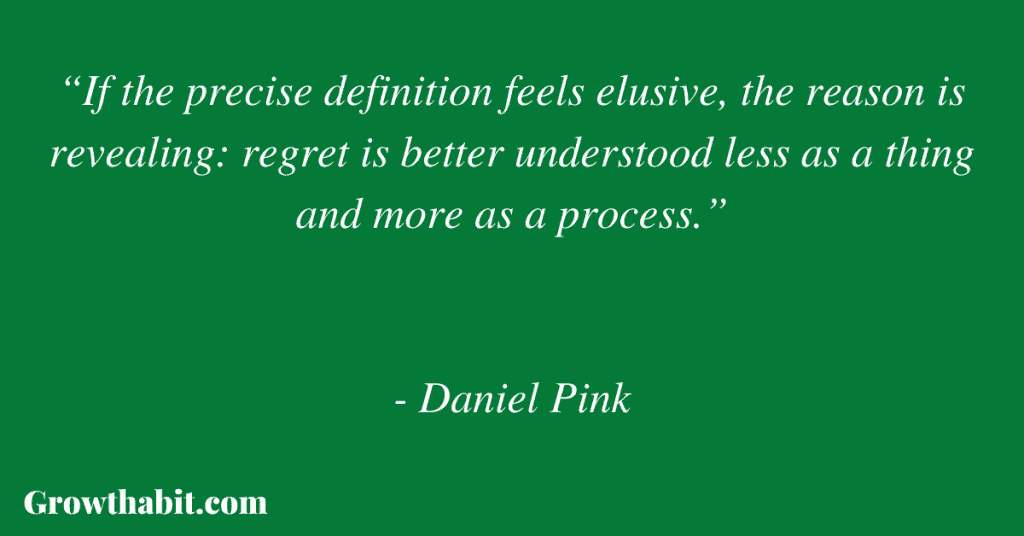
“Regret is a marker of a healthy, maturing mind.”
“In short, people without regrets aren’t paragons of psychological health. They are often people who are seriously ill.”
At Leasts and If Onlys
“Counterfactuals can point in either of two directions—down or up. With “downward counterfactuals,” we contemplate how an alternative could have been worse. They prompt us to say “At least . . .”—as in, “Sure, I got a C+ on that exam, but at least I passed the course and don’t have to take it again.” Let’s call these types of counterfactuals At Leasts. The other variety are known as “upward counterfactuals.” With upward counterfactuals, we imagine how things could have gone better. They make us say “If only . . .”—as in, “If only I’d attended class more often and done all the reading, I’d have gotten a much better grade.” Let’s call these counterfactuals If Onlys.”
“At Leasts make us feel better.”
“If Onlys, by contrast, make us feel worse.
“Two decades of research on counterfactual thinking exposes an oddity: thoughts about the past that make us feel better are relatively rare, while thoughts that make us feel worse are exceedingly common. Are we all selfsabotaging masochists? No—or at least not all of us.”
“At Least counterfactuals preserve our feelings in the moment, but they rarely enhance our decisions or performance in the future. If Only counterfactuals degrade our feelings now, but—and this is key— they can improve our lives later “
Why Regret Makes Us Better
“Gillian Ku, now of London Business School, found that getting people to think about a previous escalation of commitment, and then to regret it, decreased their likelihood of making the error again.[1] Inducing this unpleasant feeling of If Only improved their future behavior.”
“We need the ability to regret our poor decisions—to feel bad about them—precisely so we can improve those decisions in the future.”
“This is one of the central findings on regret: it can deepen persistence, which almost always elevates performance.”
“The near miss likely prompted regret, which spurred reflection, which revised strategy, which improved performance.”
“For example, framing regret as a judgment of our underlying character—who we are—can be destructive. Framing it as an evaluation of a particular behavior in a particular situation —what we did—can be instructive.”

“When you feel the spear of regret, you have three possible responses. You can conclude that feeling is for ignoring—and bury or minimize it. That leads to delusion. You can conclude that feeling is for feeling—and wallow in it. That leads to despair. Or you can conclude that feeling is for thinking —and address it.”
“When feeling is for thinking, and thinking is for doing, regret is for making us better .”
Regret on the Surface
“For example, women were more likely than men to have romance and family regrets. People with the least formal education were more likely to have education regrets, while single, unattached people harbored more romance regrets.”
The Four Core Regrets
“It took me a while to figure out, but I’ve discovered that regret, too, has both a surface structure and a deep structure. What’s visible and easy to describe—the realms of life such as family, education, and work—is far less significant than a hidden architecture of human motivation and aspiration that lies beneath it.”
Foundation Regrets
“Foundation regrets arise from our failures of foresight and conscientiousness.”
“Remember that what distinguishes regret from disappointment is personal responsibility . Disappointments exist outside of your control.”
Boldness Regrets
“Play it safe or take a chance? With boldness regrets, we choose to play it safe.”
“The consequences of actions are specific, concrete, and limited. The consequences of inaction are general, abstract, and unbounded.”
Moral Regrets
Connection regrets.
“People often talk about regrets in terms of doors. Amy has a “closed door” regret. As she told me, the opportunity to restore her connection with Deepa is gone. Cheryl has an “open door” regret. The opportunity to reconnect with her college friend remains. Both types of regrets nag at us, but for different reasons. Closed door regrets distress us because we can’t do anything about them. Open door regrets bother us because we can, though it requires effort.”
“Rifts are more dramatic. But drifts are more common. Drifts can also be harder to mend. Rifts generate emotions like anger and jealousy, which are familiar and easier to identify and comprehend. Drifts involve emotions that are subtler and that can feel less legitimate.”

“George Vaillant, another Harvard psychiatrist, headed the Grant Study for more than thirty years. In an unpublished 2012 manuscript, he reflected on what he’d learned from the experience. After eight decades, hundreds of subjects, thousands of interviews, and millions of data points, he said he could summarize the conclusion of the longest-running examination of human flourishing in five words: “ Happiness is love. Full stop .”

Opportunity and Obligation
“A solid foundation. A little boldness. Basic morality. Meaningful connections. The negative emotion of regret reveals the positive path for living.”
“Failures to become our ideal selves are failures to pursue opportunities. Failures to become our ought selves are failures to fulfill obligations.”
“A life of obligation and no opportunity is crimped. A life of opportunity and no obligation is hollow. A life that fuses opportunity and obligation is true. “
Undoing and At Leasting
“We can undo many such regrets: we can make amends, reverse our choices, or erase the consequences.”
“Finding a silver lining doesn’t negate the existence of a cloud. But it does offer another perspective on that cloud.”
Disclosure, Compassion, and Distance
“It feels awkward, even shameful. But an enormous body of literature makes clear that disclosing our thoughts, feelings, and actions—by telling others or simply by writing about them— brings an array of physical, mental, and professional benefits.”
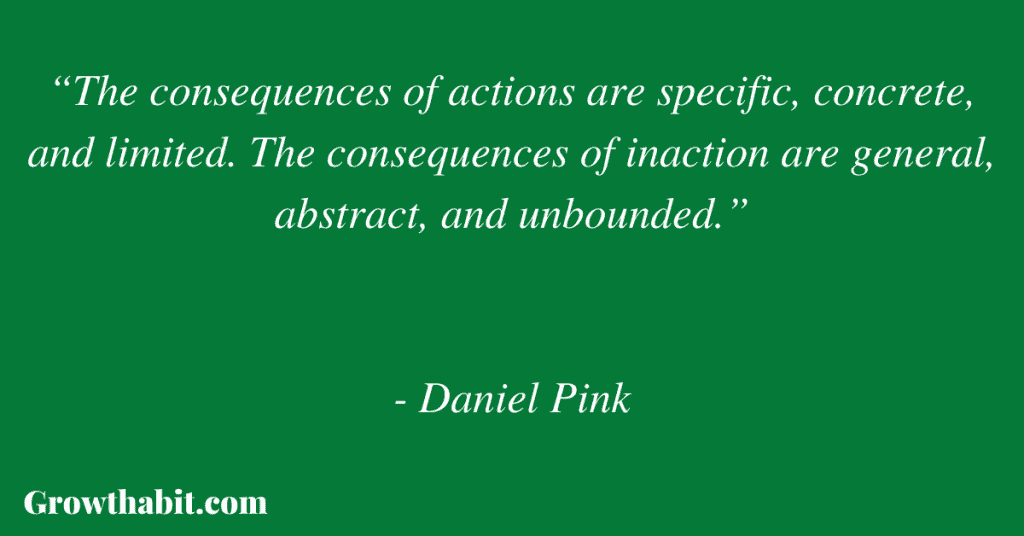
“Self-compassion begins by replacing searing judgment with basic kindness. It doesn’t ignore our screwups or neglect our weaknesses. It simply recognizes that “being imperfect, making mistakes, and encountering life difficulties is part of the shared human experience.”
Anticipating Regret
“Regret is a retrospective emotion. It springs into being when we look backward. But we can also use it prospectively and proactively—to gaze into the future, predict what we will regret, and then reorient our behavior based on our forecast.”
“ In the future, will I regret this decision if I don’t do X ?”
“One problem with using anticipated regrets as a decision-making tool is that we’re pretty bad at predicting the intensity and duration of our emotions”
“Anticipating regret can sometimes steer us away from the best decision and toward the decision that most shields us from regret”
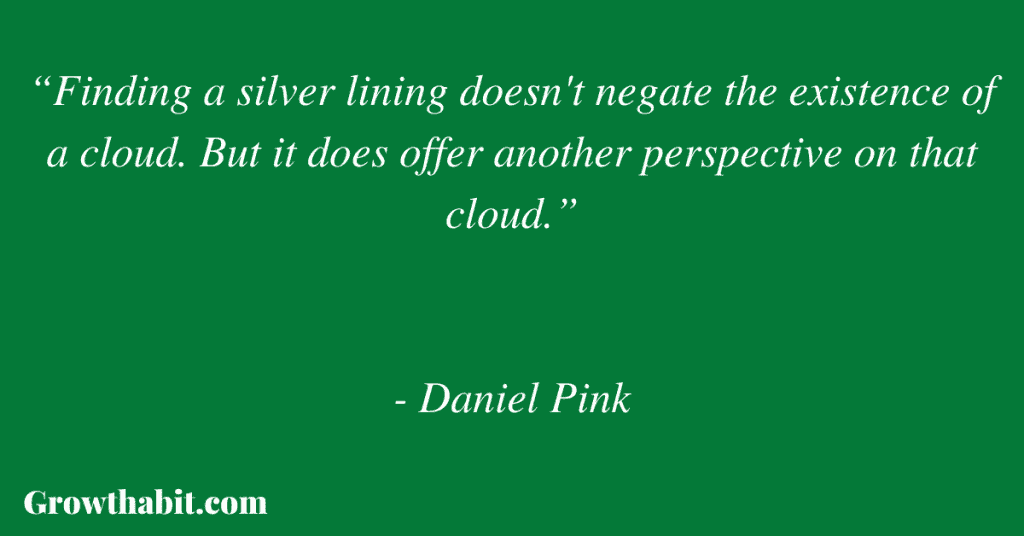
“Our goal should not be to always minimize regret. Our goal should be to optimize it.”
Book Review (Personal Opinion):
The new addition of Dan Pink makes us question the conventional phrase that having regrets is a bad thing. It’s quite a good book, with plenty of research to back up the points, and concise chapters that don’t drag for too long.
Rating : 8/10
This Book Is For (Recommend):
- A self-help junkie who feels that something is missing in the books they read
- A college student who needs to realize the sins of omission
- Anyone who wants to learn how to deal with regret
If You Want To Learn More
Here’s Daniel Pink talking about his book on a TED talk TED Talk
How I’ve Implemented The Ideas From The Book
One thing that really got to me from this book is writing regrets down. There’s just some kind of power in writing things down that makes you feel at peace. When you write good memories down, you relive them. But when you write regretful memories down, you take away their power.
One Small Actionable Step You Can Do
Write about your regret for 15 minutes a day for three days straight. If you want, you can read the writings to a person who you hold dear.
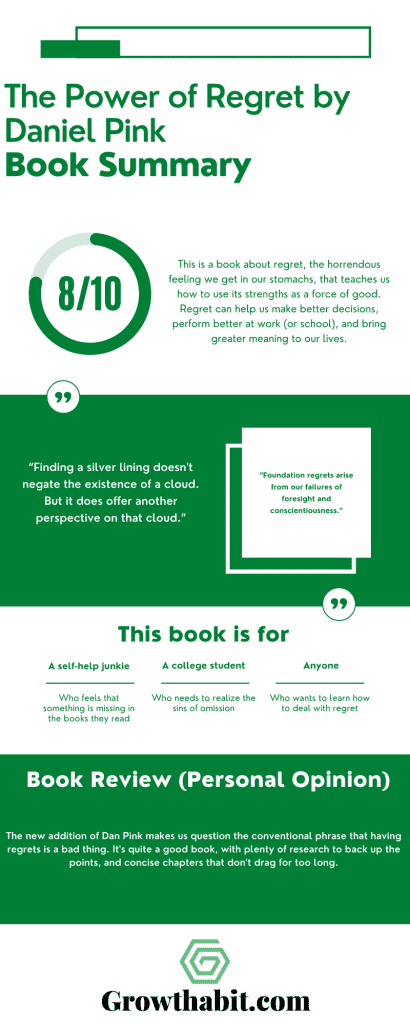
Leave a Comment Cancel Reply
You must be logged in to post a comment.
Rainy Day's Books, Video Games and Other Writings
- Book Reviews
- Other Writings
- Video Games: Old & New
Book Review: The Power of Regret: How Looking Backward Moves Us Forward

Everybody has regrets, Daniel H. Pink explains in The Power of Regret . They’re a universal and healthy part of being human. And understanding how regret works can help us make smarter decisions, perform better at work and school, and bring greater meaning to our lives. Drawing on research in social psychology, neuroscience, and biology, Pink debunks the myth of the “no regrets” philosophy of life. And using the largest sampling of American attitudes about regret ever conducted as well as his own World Regret Survey–which has collected regrets from more than 15,000 people in 105 countries–he lays out the four core regrets that each of us has. These deep regrets offer compelling insights into how we live and how we can find a better path forward. As he did in his bestsellers Drive, When, and A Whole New Mind, Pink lays out a dynamic new way of thinking about regret and frames his ideas in ways that are clear, accessible, and pragmatic. Packed with true stories of people’s regrets as well as practical takeaways for reimagining regret as a positive force, The Power of Regret shows how we can live richer, more engaged lives.
This book about regret and its power is an unforgettable read. Jammed full of knowledge that takes more than one sitting to digest, Daniel Pink is very insightful and knowledgeable when it comes to discussing regret in human life and the role each of us must play with it. From discussing the four distinct types of regret we each experience to how to go about turning our regretful actions into a positive direction, Pink uses his research and knowledge to transform regret into a powerfully positive force we can harness to our advantage. As a reader, I found that Pink transformed my understanding of what regret truly is into something that can be more insightful than I initially expected.
I found the way regret was discussed in each chapter insightful. I particularly enjoyed how he brought about discussing all the different types of regret a person can have by providing real-life examples. While most of the examples provided were things I couldn’t particularly relate to, I feel like the context of the regrets discussed made sense to me. The research he used to back up his perspective was interesting to read as it helped tie any potential loose ends together.
What I didn’t enjoy when reading The Power of Regret , however, is that how to deal with your own regrets isn’t fully discussed. Yes, he mentioned a couple helpful pieces of information regarding what you can do when handling a regret you have. However, he never fully explained this information to you as the reader. If anything, this book covers the subject of dealing with your own regrets for a short amount of time in comparison to the discussion had about all the different types of regret you can experience.
I also would’ve loved to have gotten more information with regards to how dealing with your own regrets benefits you. I feel like this would’ve been an interesting topic to have brought up through this book because then as a reader, I can understand how powerful dealing with my own regrets could truly be. Also would’ve loved to see Pink discuss some of his own personal regrets too. Not because I want to know all about his personal life, but to see how he handled some of the biggest regrets in his life using the knowledge he’s shared in this book. Overall, I enjoyed reading The Power of Regret . I found the overall information gleamed within its pages very insightful and something everyone could learn a little bit from. It made me reflect on some of my own life choices I’ve made and think about what would’ve happened if I’d done some things a little differently.
Share this:
Raney simmon.
Books , Personal , review , writing
book review , books , daniel h. pink , how looking backward moves us forward , nonfiction , rainy day's books video games and other writings , reading , self-help , the power of regret
2 thoughts on “ Book Review: The Power of Regret: How Looking Backward Moves Us Forward ”
March 21, 2022 at 10:51 pm
Sounds like an interesting book. I might just go and check it out. I’ve always believed that regret is our guideline to living a better life, and it’s awesome that there’s a book on this. Thanks for sharing!
March 22, 2022 at 8:14 am
It was definitely an interesting read. I highly recommend if you’re interested in learning even more about regret.
Leave a comment Cancel reply
- 96,033 hits
Follow me on Twitter
Subscribe to blog via email.
Enter your email address to subscribe to this blog and receive notifications of new posts by email.
Email Address:
Blog at WordPress.com.

- Already have a WordPress.com account? Log in now.
- Subscribe Subscribed
- Copy shortlink
- Report this content
- View post in Reader
- Manage subscriptions
- Collapse this bar

206-660-6190
Book review: the power of regret.
Daniel Pink is one of America’s most successful writers, rivaling Malcolm Gladwell and Michael Lewis. I haven’t read all his books, but I have read Free Agent Nation , Drive , To Sell is Human and When . Every one of those I’ve read has been excellent and he continues his string of hits with his latest offering, The Power of Regret.
Many people claim they have no regrets. Often, they even get a tattoo to proclaim they have no regrets. The point of the first chapter of the book is, if you have no regrets, you’re a moron. In fact, regret makes us human. Regret makes us better. Or, regret can make us better, which is the point of the book.
Regret is, “The unpleasant feeling associated with some action or inaction a person has taken which has led to a state of affairs that is created by a comparison between the actual outcome and the outcome that would have occurred had the decision maker made a different choice.”
Three benefits of regret:
- Improve decisions. Leaning into regret improves our decision making.
- Boost performance. Regret can deepen persistence, which almost always elevates performance.
- Deepen meaning. Regret can help us find greater meaning in what we’ve done with our lives. It can also help us change decisions we make in the future.
The most common regrets are related to family, partners, education, career, finance, health and friends. But these categories are too superficial. Another way to classify regrets is within four core areas:
- Foundation regrets . Our failure to be responsible, conscientious, or prudent.
- Boldness regrets . We didn’t take the opportunities we were given.
- Moral regrets . We succumbed to a morally dubious decision.
- Connection regrets . Our actions give our lives direction, but other people give those lives purposes. Fractured or unrealized relationships are the source of these regrets.
Foundation Regrets include taking better care of our health when young, starting to save when young, working harder in school. Boldness Regrets include not pursuing a romance, not speaking out, being too shy, not starting a business. Moral Regrets include infidelity, deceit, theft, betrayal and sacrilege. Connection Regrets include not maintaining friendships or connections with family members.
What do we do with our regrets? If regrets make us human, how do we enlist them to make us better?
Regrets can be disclosed, reframed, and a lesson can be extracted.
Step 1. Self-disclosure : Relive and relieve. Self-disclosure is much healthier than denying a regret. Instead, relive and relieve allows us to reduce some of the burden and clear a path for making sense of it.
Step 2. Self-compassion : Normalize and neutralize. Once you’ve disclosed the regret, you can dress yourself down or pump yourself up. Neither is the best way. Self-compassion is better. Treat yourself as you would your best friend.
Step 3. Self-distancing : Analyze and strategize. Think or speak of yourself in third person. This allows you to be more objective and dispassionate. Time is another way to distance yourself from regret.
The book is a joy; easy to read and full of insights and help. It will make you a better person. I think you’ll like it.
No comments yet.
Leave a reply click here to cancel reply..
Name (required)
Email (will not be published) (required)
Book Review: The Power of Regret
- July 27, 2022
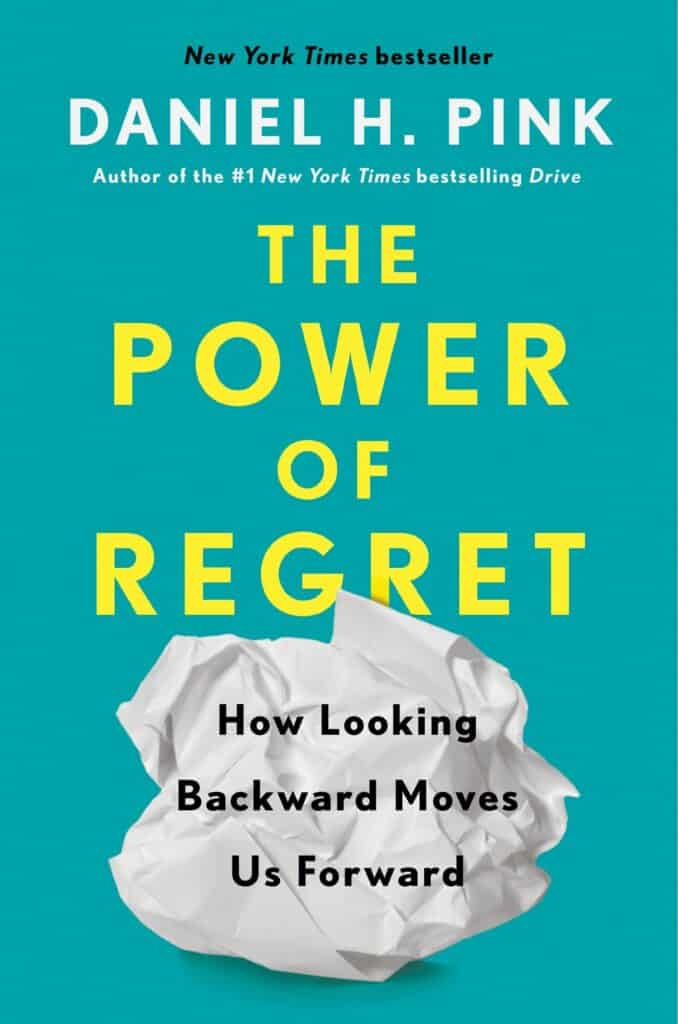
Book: The Power of Regret: How Looking Backward Moves Us Forward
By: Daniel H. Pink
Reviewed by: Shelby Brown
The Premise: This book, The Power of Regret: How Looking backward Moves Us Forward , came on my radar this summer as I was looking for a book that would help me with a personal mid-year refresh. I know that I have regrets –everyone does- and that’s what makes us human. And at The Roundtable, we are firm believers in learning from your mistakes and growing from them. The title of this book intrigued me as it seemed to aim at just that. Daniel Pink really takes the time in the book to explain how regret works, why we have regret, and most importantly, how we can use regret to help us make better, more informed and effective decisions. Pink is a New York Times bestseller, so I was certain I’d get some value from these couple hundred pages – and I did!
Regrets, are a universal and healthy part of our lives. And understanding how regret works can help us perform better at work and school, and bring greater meaning to our lives.
The Bottomline: Pink shares how regret can be used as a tool to help us with decision making and ultimately help us perform better in our day-to-day lives, and while at work. I am always on the lookout for the newest and latest research, and Pink was able to offer quite a bit of research in this book to support his theories. Honing in on neuroscience and social psychology research, Pink illustrates how regret can be transformed into a useful tool.
What was fascinating in this book, is that Pink conducted the largest sampling of American opinions on regret that has ever been executed, and used this large study to conduct his research and reach conclusions. He also used data from his “World Regret Survey” to showcase the main four regrets that we as people have. He goes on to share how our own regrets can actually offer really great insight into how we can improve.
This book is also packed with real life stories and examples – which I always find resonates with me – of how people have shifted their regrets to forward thinking action. He really illustrates how reimaging what regret is can be very powerful and positive.
Recommendation: I recommend this book for anyone who is looking for a reset to help them make smarter decisions. This was a great summer read, a perfect balance of being able to utilize tools you already have, and introduction of new tools to help you move forward.
Shelby Brown
Blog categories, recent posts.
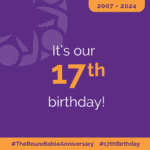
17 Highlights From 17 Years
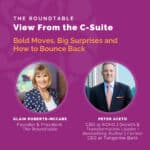
Three Key Takeaways from View From the C-Suite with Peter Aceto
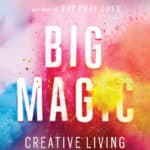
Book Review: Big Magic: Creative Living Beyond Fear

Are You a Situational Leader?
Search This Blog
By any other nerd.
I read. I run. I write. Add a dash of learning, a hint of reflecting, a handful of wonder, and a smidgen of technology. Repeat. Updates on books, education, pop culture, and anything else that comes to mind!
Review: The Power of Regret: How Looking Backward Moves Us Forward

Post a Comment
Recent and popular posts, short story #236: sucker by carson mccullers, of bunnies and logos: the playboy icon, poem #13: songs for the people by frances ellen watkins harper, short story #295: beware of the dog by roald dahl, data for dollars: apps that pay.
CLIENT LOGIN

The Power of Regret: How Looking Backward Moves Us Forward – Book Review

- “Regret, handled correctly, offers three broad benefits. It can sharpen our decision-making skills. It can elevate our performance on a range of tasks. And it can strengthen our sense of meaning and connectedness.” (p. 42)
- Identify which of the four basic categories the regret you are feeling falls into. They are: “foundation regrets, boldness regrets, moral regrets, and connection regrets.” (p. 15)
- Pink describes foundation regrets as those that occur when we choose an easy path over a hard path for a life decision – for ex., the choice to spend rather than save when you are in your 20’s – and you have the benefits of time and the compounding value of money on your side.
- Boldness regrets occur when we look back at a time when we chose to remain quiet or inactive in the presence of the opportunity to make a bold move.
- Moral regrets are what they sound like and “connection regrets arise any time we neglect the people who help establish our own sense of wholeness. When those relationships fray or disappear or never develop, we feel an abiding loss.” (p. 80)
- If you find yourself falling into the trap of ruminating on your feelings, try thinking through the regret to find an action that you can take. Suggestions on how to benefit from our regrets include writing about the experience using third person, talking about it into a tape recorder, and reframing the regret to focus on a positive outcome.
- Or as Pink says, “What does this regret tell you? What instructions does it offer for making better decisions? For improving your performance? For deepening your sense of meaning?…. When feeling is for thinking, and thinking is for doing, regret is for making us better.” (p. 55)
- For those prone to overanalyzing everything, consider that when you are evaluating a decision that you need to make, you can think ahead and imagine that you chose incorrectly. Will the regret you feel fall into one of those four categories or not? If not, make a decision and move on. If so, spend more time thinking through the decision.
If you’ve enjoyed this Power of Regret book review, you may also enjoy my review of The Power of Habit: Why We Do What We Do in Life and Business .
Discover More!

Get Yours Today!
Herding Smart Cats: Project Management Reimagined
In this book, Suzanne S. Davenport argues that the technologies and tools that got us where we are today won’t get us where we want to be in the future. She offers a vision of how we could transform project and work management to improve profits.

Get Started Today!
Project management: eight lesson crash course ebook.
While reading this eight lesson eBook course, you will learn how to establish project management processes that will guide your teams to success. You will be introduced to the different kinds of projects and project methodologies, begin developing a standardized project language that will help your teams communicate more effectively, learn the value of a project plan and how to complete one, so that you can more successfully finish your projects, and understand how to execute and manage your project for maximum benefits.
Get more from Smart Projex
Signup for our Newsletter
" * " indicates required fields

© 2012 – 2024 Smart Projex, Inc. | All Rights Reserved | Terms of Use | Privacy Policy
Never miss a detail!
Join our mailing list
Let’s Make Things Happen

**Smart Projex will never share or sell your private information

IMAGES
VIDEO
COMMENTS
Find deals and low prices on book power of regret at Amazon.com. Browse & discover thousands of brands. Read customer reviews & find best sellers
From the #1 New York Times-bestselling author of When and Drive, a new book about the transforming power of our most misunderstood yet potentially most valuable emotion: regret. Everybody has regrets, Daniel H. Pink explains in The Power of Regret.They're a universal and healthy part of being human. And understanding how regret works can help us make smarter decisions, perform better at work ...
10 Best Books of 2024: The staff of The New York Times Book Review has chosen the year's top fiction and nonfiction. For even more great reads, take a spin through all 100 Notable Books of 2024 .
A psychologist and Nobel Prize winner summarizes and synthesizes the recent decades of research on intuition and systematic thinking. The author of several scholarly texts, Kahneman (Emeritus Psychology and Public Affairs/Princeton Univ.) now offers general readers not just the findings of psychological research but also a better understanding of how research questions arise and how scholars ...
Book Title: The Power of Regret: How Looking Backward Moves Us Forward Author: Daniel Pink Date of Reading: February 2022 Rating: 8/10. ... Book Review (Personal Opinion): The new addition of Dan Pink makes us question the conventional phrase that having regrets is a bad thing.
Rating: 3.5 stars Everybody has regrets, Daniel H. Pink explains in The Power of Regret. They're a universal and healthy part of being human. And understanding how regret works can help us make smarter decisions, perform better at work and school, and bring greater meaning to our lives.Drawing on research in social psychology, neuroscience, and biology,…
Or, regret can make us better, which is the point of the book. Regret is, "The unpleasant feeling associated with some action or inaction a person has taken which has led to a state of affairs that is created by a comparison between the actual outcome and the outcome that would have occurred had the decision maker made a different choice."
Book: The Power of Regret: How Looking Backward Moves Us Forward By: Daniel H. Pink Reviewed by: Shelby Brown The Premise: This book, The Power of Regret: How Looking backward Moves Us Forward, came on my radar this summer as I was looking for a book that would help me with a personal mid-year refresh.I know that I have regrets -everyone does- and that's what makes us human.
The link below is my in-depth review of Daniel Pink's latest book, The Power of Regret: How Looking Backward Moves Us Forward. In the article, I describe in detail the four most common types of regret and how we can use this information to make better decisions. The Four Most Common Regrets and What They Tell Us About Living a Good Life
The Power of Regret: How Looking Backward Moves Us Forward by Daniel H. Pink My rating: 4 of 5 stars We live in a culture that tells us we should have "no regrets"; we should be forward-looking, forget the past, and charge into the future, never pause to linger on mistakes we've made, opportunities we've missed, or considering how our life might have been different.
My book review this month is on Dan Pink's new book, The Power of Regret. The thesis is that the popular mantra of No Regrets is a "delightful but dangerous doctrine" (p. 6) and we benefit from focusing on our regrets in a constructive way.